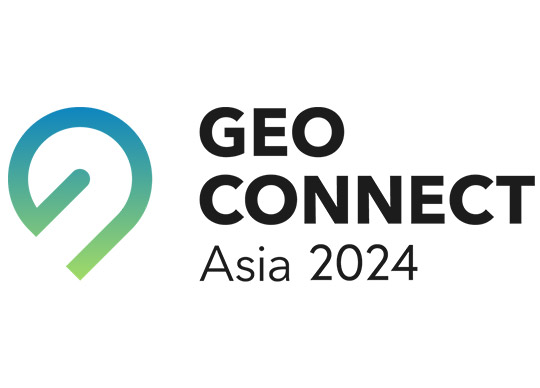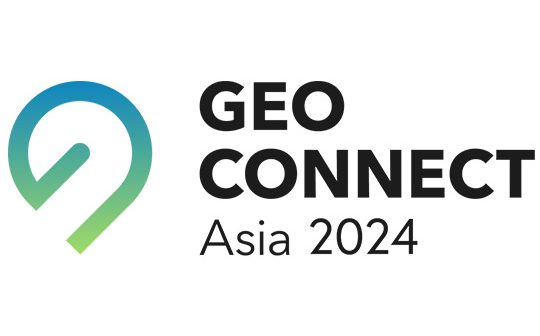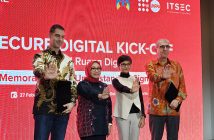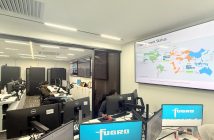
The fourth edition of Geo Connect Asia (GCA) has opened at the Sands Expo and Convention Centre in Singapore.
GCA 2024 is held alongside co-located shows Drones & Uncrewed Asia, Digital Construction Asia and the inaugural Marine & Hydro Asia, which focus on the latest technologies relating to unmanned aerial vehicles, digital construction, and hydrospatial challenges, respectively.
Guest of Honour Edwin Tong, Minister for Culture, Community and Youth and Second Minister for Law, addressed attendees during the opening ceremony, which was graced by notable attendees from the Singapore Land Authority (SLA); Land Transport Authority; Health Security Agency of the United Kingdom; Lands Department of Hong Kong; Open Geospatial Consortium; and the Geospatial Information Agency of the Republic of Indonesia.
The burgeoning global geospatial information and technology market is forecasted to be valued at US$1.37 trillion by 2030, as advancements in remote sensing, location-based analytics and other geospatial solutions shape countless sectors such as construction, agriculture, environment monitoring, supply chain management and natural resource management.
APAC is playing a leading role in the ecosystem’s accelerating growth across the globe, with its industry projected to be worth US$216 billion by 2025.
The convergence of geospatial technologies is weaving stronger connections between nations, through knowledge sharing and increasing collaboration to the shared challenges that go beyond geographical boundaries.
Rupert Owen, Co-founder of Geo Connect Asia, said, “I am delighted to welcome the industry back to Geo Connect Asia. Following three successful editions, Geo Connect Asia and Digital Construction Asia 2024 bring together the brightest minds from the region and beyond to share proven solutions, and how they can help address some of the most pressing challenges of today.
The launch of Marine & Hydro Asia adds hydrographic content to the overarching theme of ‘underground, land and sea to sky’, while Drones & Uncrewed Asia navigates exciting pathways.”
Colin Low, Chief Executive of the Singapore Land Authority, said, “As the national geospatial and mapping agency, the Singapore Land Authority aims to drive collaboration between public and private agencies, as well as the community. Industry platforms like Geo Connect Asia foster innovation, empower individuals and businesses to leverage the transformative technologies not just for economic development, but to create smarter, geo-enabled outcomes for a more inclusive and sustainable future for all.”
The Geo Market Place
The GCA exhibition is back with an expanded floor space to showcase the widest range of geospatial and related technologies yet. These include spatial analysis software, satellites, remote sensors, mapping systems, laser scanners, unmanned vehicles, ground-penetrating radars, satellite communications services, UAV traffic management platforms, and many more. Leading exhibitors at the main exhibition showground include Trimble, Oracle and NavVis, and pavilions from Singapore and Thailand.
Geo Connect Asia Conference
The conference theme, “Geospatial Driven Impacts: Underground, Land and Sea to Sky”, captures the all-encompassing capabilities of geospatial solutions. With a stellar line-up of speakers across vectors, the programme will facilitate conversations between makers and users of these technologies to unleash their full potential.
Notable speakers hail from AECOM, Electricity Generating Authority of Thailand (EGAT), Lands Department Hong Kong, Petronas, and Portcoast (Vietnam), Ministry of Health Singapore, and GCA Strategic Partner Singapore Land Authority, among many others.
Conference topics include:
- The diagnostics of location in improving life quality
- Nature-based solutions for future urban development
- The promise of AI in construction technology: Industry transforming or a big fat fallacy?
- Going global: how the Asia Pacific region is leading the way in autonomous aviation
- Living on the edge: Building capacity and sharing to manage natural disasters
- Geospatial drivers in speeding up the decarbonisation agenda
- Mitigating risks to critical infrastructure assets
- Closing plenary: Mainstreaming Geospatial: Harnessing geospatial innovation for healthcare, community, and sustainable development





